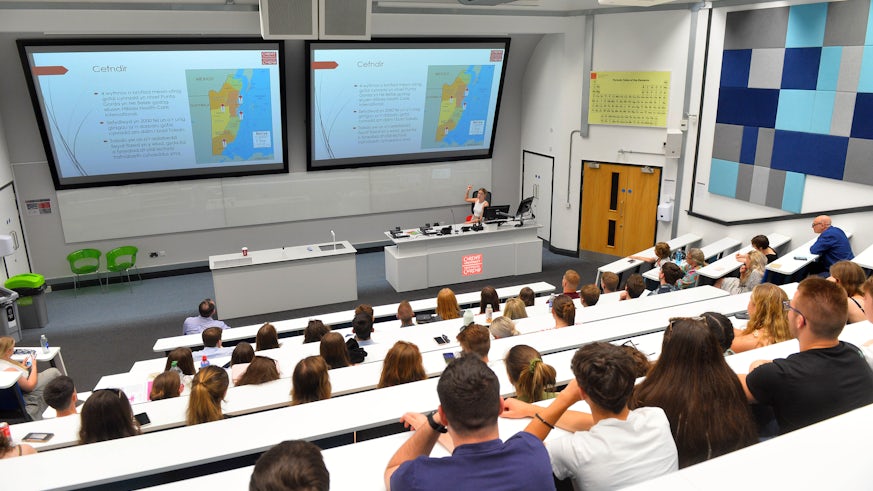All Cardiff University medical students to get Welsh skills
17 November 2022

Every second-year medical student will receive compulsory Welsh communication training to give them the skills to treat their Welsh-speaking patients when on placements in hospitals.
Sara Vaughan, Welsh Development Manager from the University’s School of Medicine, said: “Treating patients in their first language has been shown to improve patient outcomes and better patient understanding of their treatments. We know that when students go out on placement, being able to greet patients in Welsh can be beneficial for both parties.
“Welsh Governments’ More than Words strategy requires patients to be offered treatment in Welsh, rather than having to ask for it. This initiative aims to fulfil that vision and equip our students to work in the bilingual setting that the whole of Wales offers and requires.
“Our Welsh language communication training will develop the Welsh language proficiency of the next generation of medics serving the people of Wales. By implementing Welsh-language training into our curriculum, we aim to ensure that all medical students graduating from Cardiff University enter the community with a level of Welsh that allows them to best treat their patients in a truly bilingual nation.”
Since 2015, Medical students at the University have been able to study their degree through the medium of Welsh, equipping them with the skills to communicate in a professional medical setting in both English and Welsh. The new programme makes it compulsory to develop Welsh language communication skills as part of the School’s curriculum, upskilling all students to have a level of Welsh language skills to use with their patients.
As part of the pilot, students can now choose to be enrolled in fluent, non-fluent and non-Welsh speaking streams of the programme, tailoring their communication training to their Welsh language level. The training includes incorporating trained actors to create mock scenarios to test their treatment and Welsh-language skills.

Hannah Rossiter, a medical student at Cardiff University, said: “Having moved to Wales for university, I was previously unaware of the prevalence of the Welsh language and the importance of providing Welsh-speaking patients with the option to receive care in their mother tongue, which has been shown to improve patient-doctor relationships and clinical outcomes.”
The university aims for this pilot programme to become an established part of medical training by 2023.
Awen Iorwerth, Clinical Lecturer at the University’s School of Medicine said: “We know that having their care by someone who acknowledges, and perhaps speaks their mother tongue improves patient outcomes and satisfaction. Recent research has shown that medical students who have Welsh language skills are more likely to stay and work in Wales after graduating.
“This training aims to improve the healthcare experience for our patients and families, reduce anxiety and welcome all our students and hopefully encourage them to stay in Wales to serve our bilingual population.”